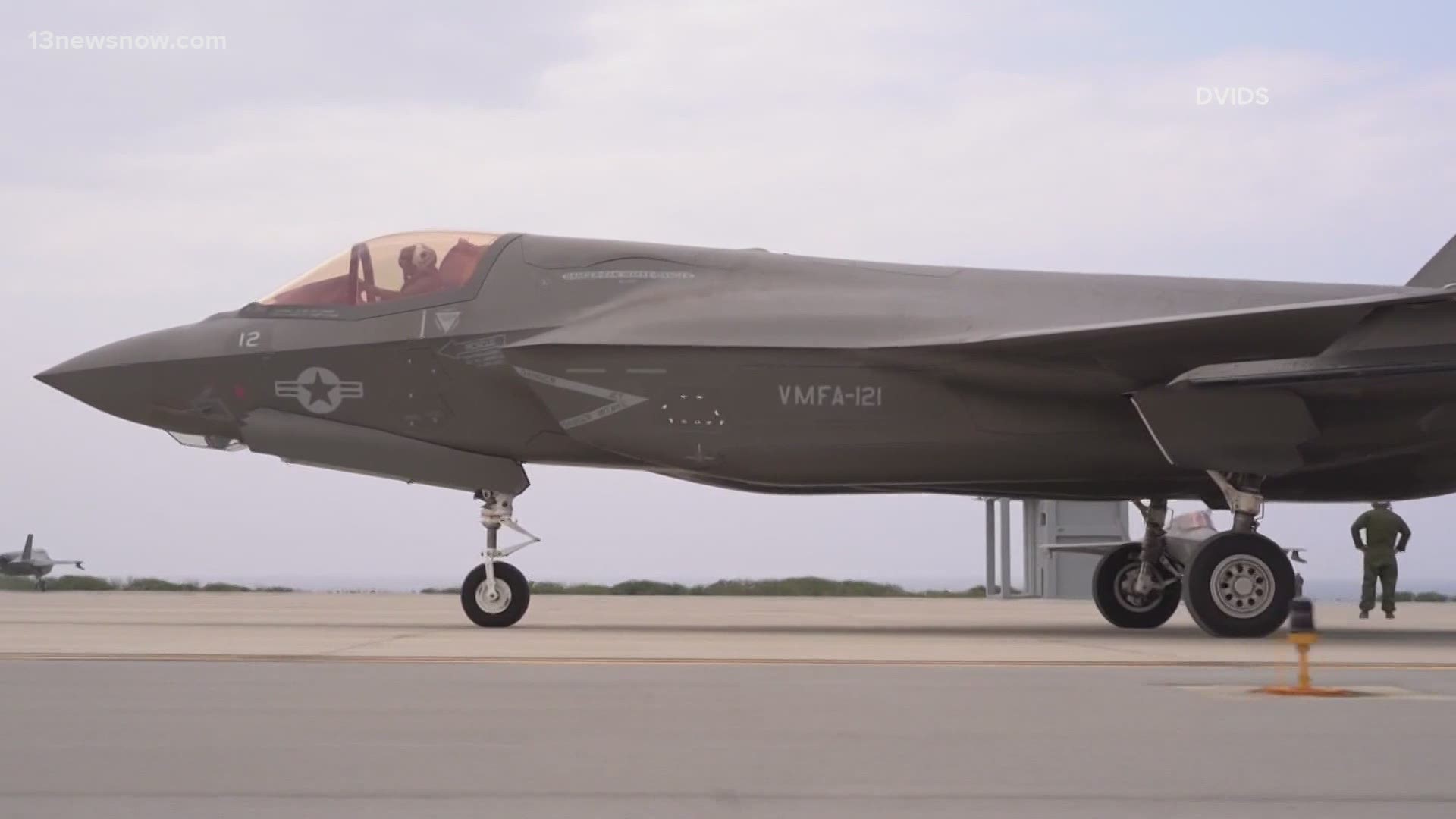NORFOLK, Va. — After years of cost overruns and delays, and operational challenges like maintaining supersonic speed, keeping cabin pressure and remaining in control when flying above a 20-degree angle, now, the chairman of the House Armed Services Readiness Subcommittee is suggesting that Congress may cut back on purchases of the Lockheed Martin F-35 Joint Strike Fighter.
"The F-35 is a huge problem," said Rep. John Garamendi (D-California). "And one of the principal problems is, we buy more planes, we're not able to maintain the older ones, so we buy more, the worse the overall performance has been. That is going to stop."
Rep. Jackie Speier (D-California) added: "It's never worked. And we keep paying for the fact that it doesn't work, and paying all the maintenance costs. It just seems like, stupid-is as stupid-does. Why are we doing the same thing over and over?"
The subcommittee also asked questions about the origin of key electronics for the F-35, and whether they may be compromised in some way.
"Let me ask this, do any of the parts from the F-35 come from China?" asked Speier.
Navy Vice Admiral Dean Peters, Commander Naval Air Systems, said manufacturers watch for those kinds of defects.
"We track the main components very closely, and I don't know of any main components that come from China," he said. "However, as you go down into the supply chain at the third and fourth tier, it's very likely there are some electronic parts that come from China."
The Government Accountability Office came out with a new report that indicated the DoD had not finished developing the F-35 aircraft simulator, which delayed testing and again delayed the decision on when to start full production.
The latest Pentagon estimate puts the entire F-35 program's cost — when all orders are filled and the entire fleet is operational — at more than $1.7 trillion.

